|
On episode 130, Enigma reunites with Joe Ward about his various media outlets, co-founding Freedom Train Radio and his vision for the future of the network...
Also, Enigma discusses the King Redd's performance in Atlanta, Ghostface Killah/Raekwon Verzuz and Samaria Rice/Tamika Mallory Grammy controversy! #BoomBoomBoom #YouGotTimeBaby #FreedomTrainRadio Playlist: Royzy Rothschild x Miss Stylie - Henney In Me and I'm Feeling Fine Ro-Thoro x Tareef Knockout - Keep Dreaming Ashton Martin - Growth 4 Pompeii - Losing Control Contact Joe Ward at [email protected] Instagram: therealjosephward Facebook: www.facebook.com/josephward84 Twitter: @JoeWard84 Linktree: linktr.ee/therealjosephward Contact Enigma September at: [email protected] Twitter: @enigmasept9 Facebook: www.facebook.com/enigmasept www.facebook.com/enigmasept9 www.facebook.com/groups/enigmasept Instagram: enigmasept Youtube: www.youtube.com/enigmasept927 Music: www.enigmasept9.bandcamp.com Cashapp: $enigmasept Check out all episodes of Freedom Train presents The Enigma Sept Hour podcast at: https://www.freedomtrainradio.com/the-enigma-sept-hour.html
0 Comments
Click the link below to read The Negro Digs Up His Past
https://www.homeworkmarket.com/files/... #OTSOG #Blackhistory #arthurschomburg #historian Click the link to join the OTSOG family and get a free copy of On the Shoulders of Giants Vol: 1 North America https://lp.constantcontactpages.com/s... Cashapp: $joeward84 Follow us on Instagram and Twitter @ontheshoulders1 Visit us at www.ontheshoulders1.com or www.ontheshoulders.org Visit www.ontheshoulders1.com to download out African history curriculum app Like us on Facebook: On the Shoulders of Giants Follow on Tiktok: @thejoeward Connect on LinkedIn: Joseph Ward Click the link to get your copies of On the Shoulders of Giants book series http://ontheshoulders1.com/store/
On March 23, 1942, Walter Anthony Rodney was born to parents Edward and Pauline Rodney in Georgetown, Guyana. Rodney’s family was considered working class, but he was still able to excel in his academics as a young boy. During high school he continued to excel which led him to graduate at the top of his Queen’s College class of 1960; Queen’s College was the top male high school in Guyana. Because of his academic excellence, he earned a scholarship to attend the University of the West Indies at Mona, Jamaica. In typical Walter Rodney fashion, he graduated at the top of his class with honors and a degree in history in 1963. His next step was attending the School of Oriental and African Studies at the University of the West Indies, where at the age of twenty-four he was an honors student who earned his Ph.D. in African History. His dissertation “A History of the Upper Guinea Coast 1545 to 1800” was so exceptional that the Oxford University Press published it in 1970.
As a city council member she used her position to help create change in Brazil fighting for black rights, LGBTQ+ rights, women’s rights, the rights of Brazil’s poor, and many more. She was a force to be reckoned with. Franco served as the chairperson of the Women's Defense Commission and also positioned herself to be able to oversee Rio de Janeiro’s federal interventions into their local dealings. She pushed hard to destigmatize LGBTQ+ relations and even worked to create a bill that would approve of a day of lesbian visibility; the bill was eventually voted down.
Follow us on Instagram and Twitter @ontheshoulders1 Visit us at www.ontheshoulders1.com or www.ontheshoulders.org Visit www.ontheshoulders1.com to download out African history curriculum app Like us on Facebook: On the Shoulders of Giants Follow on Connect on LinkedIn: Joseph Ward Click the link to get your copy of On the Shoulders of Giants Vol 3: South America. http://ontheshoulders1.com/store/ Click the link to get your Amazon Kindle version https://www.amazon.com/Shoulders-Gian...
Dr. Runoko Rashidi is an anthropologist and historian with a major focus on what he calls the Global African Presence–that is, Africans outside of Africa before and after enslavement. He is the author or editor of twenty-two books, the most recent of which are My Global Journeys in Search of the African Presence, Assata-Garvey and Me: A Global African Journey for Children in 2017, and The Black Image in Antiquity in 2019. His other works include Black Star: The African Presence in Early Europe, published by Books of Africa in London in November 2011, and African Star over Asia: The Black Presence in the East, published by Books of Africa in London in November 2012 and revised and reprinted in April 2013, Uncovering the African Past: The Ivan Van Sertima Papers, published by Books of Africa in 2015. His other works include the African Presence in Early Asia, co-edited by Dr. Ivan Van Sertima. Four of Runoko’s works have been published in French.
Learn more about Dr. Runoko Rashidi by visiting www.drrunoko.com PHONE: (323) 323-8663 EMAIL: [email protected] or [email protected] Support Dr. Runoko on Patreon https://www.patreon.com/RunokoRashidi... Cashapp: $RunokoRashidi
The Importance of the Preservation of African American History: Delaitre Hollinger Interview6/5/2021
On today's broadcast I am interviewing Mr. Delaitre Hollinger, Historian and founder of the National Association for the Preservation of African American History & Culture (NAPAAHC). We will be discussing the importance of the preservation of African American history and culture. Mr. Hollinger is a young man who has dedicated himself to learning and preserving African American history. Through his organization NAPAAHC he has been able to successfully preserve historical sites, and even have roads, parks and buildings renamed after important black figures.
To learn more about NAPAAHC visit www.blackpreservation.org. NAPAAHC was founded on a mission to preserve, cultivate and protect the life, history, cultural, and historical resources of African-Americans through education, saving our historical treasures, and sharing the stories of unsung heroes in local communities throughout the United States. Facebook: https://www.facebook.com/NAPAAHC Facebook: https://www.facebook.com/delaitrejhollinger/?ref=page_internal IG: @blackpreservation Email: [email protected] Follow us on Instagram and Twitter @ontheshoulders1 Visit us at www.ontheshoulders1.com or www.ontheshoulders.org Visit www.ontheshoulders1.com to download out African history curriculum app Like us on Facebook: On the Shoulders of Giants Connect on LinkedIn: Joseph Ward Click the link to get your copy of On the Shoulders of Giants Vol 3: South America. http://ontheshoulders1.com/store/ Click the link to get your Amazon Kindle version https://www.amazon.com/Shoulders-Gian...
Make sure you study all of Dr. Clarke's work to fully see his impact on African people globally.
Subscribe to our On the Shoulders of Giants YouTube Channel: YouTube.com/ontheshoulders1 Cashapp: $joeward84 Follow us on Instagram and Twitter @ontheshoulders1 Visit us at www.ontheshoulders1.com or www.ontheshoulders.org Visit www.ontheshoulders1.com to download out African history curriculum app Like us on Facebook: On the Shoulders of Giants Connect on LinkedIn: Joseph Ward Click the link to learn more about the OTSOG book series. http://ontheshoulders1.com/store/ Click the link to get your Amazon Kindle version https://www.amazon.com/Shoulders-Gian...
On March 20, 1915, Rosetta Nubin was born in Cotton Plant, Arkansas, to parents Willis Atkins and Kate Bell Nubin. Her father Willis was a cotton picker and singer, her mother Kate was a singer, mandolin player and, a COGIC preacher for her traveling ministry. Tharpe began singing and playing the guitar at the age of four and was considered a child prodigy by the age of six. The Tharpe family traveled throughout the South performing for various audiences until the family moved to Chicago, Illinois around 1925. The Tharpe family began performing at the fourth street COGIC church in Chicago and around the United States, igniting audiences with their skills and flair. Tharpe was gaining notoriety as a young talented singer and guitar player; she was one of the few black female guitarists making a name at the time. In 1934, Tharpe met and married a COGIC preacher named Thomas Thorpe, the couple lasted a few years before they divorced. Following her divorce, Tharpe’s stage named became Sister Rosetta Tharpe, she moved to New York with her mother and signed a record deal with Decca Records in 1938.
Support us on Patreon: https://www.patreon.com/OTSOG Follow us on Instagram and Twitter @ontheshoulders1 Visit us at www.ontheshoulders1.com or www.ontheshoulders.org Visit www.ontheshoulders1.com to download our African history curriculum app Click the link to get your copy of On the Shoulders of Giants Vol 3: South America. http://ontheshoulders1.com/store/ Click the link to get your Amazon Kindle version https://www.amazon.com/Shoulders-Gian...
The Importance of the Preservation of African American History: Featuring Mr. Delaitre Hollinger10/31/2020
On today's broadcast I am interviewing Mr. Delaitre Hollinger, Historian and founder of the National Association for the Preservation of African American History & Culture (NAPAAHC). We will be discussing the importance of the preservation of African American history and culture. Mr. Hollinger is a young man who has dedicated himself to learning and preserving African American history. Through his organization NAPAAHC he has been able to successfully preserve historical sites, and even have roads, parks and buildings renamed after important black figures.
To learn more about NAPAAHC visit www.blackpreservation.org. NAPAAHC was founded on a mission to preserve, cultivate and protect the life, history, cultural, and historical resources of African-Americans through education, saving our historical treasures, and sharing the stories of unsung heroes in local communities throughout the United States. Facebook: https://www.facebook.com/NAPAAHC Facebook: https://www.facebook.com/delaitrejhol... IG: @blackpreservation Email: [email protected] Support us on Patreon: https://www.patreon.com/OTSOG Follow us on Instagram and Twitter @ontheshoulders1 Visit us at www.ontheshoulders1.com or www.ontheshoulders.org Visit www.ontheshoulders1.com to download out African history curriculum app Like us on Facebook: On the Shoulders of Giants Follow on Tiktok: @thejoeward Connect on LinkedIn: Joseph Ward Click the link to get your copy of On the Shoulders of Giants Vol 3: South America. http://ontheshoulders1.com/store/ Click the link to get your Amazon Kindle version https://www.amazon.com/Shoulders-Gian...
A Breakdown of Dr. Martin Luther King Jr's "Where Do We Go From Here" speech by Joseph Ward10/24/2020
On the Shoulders of Giants
Click the link to get your copy of On the Shoulders of Giants Vol 3: South America. http://ontheshoulders1.com/store/ Click the link to get your Amazon Kindle version https://www.amazon.com/Shoulders-Gian... Support us on Patreon: https://www.patreon.com/OTSOG Follow us on Instagram and Twitter @ontheshoulders1 Visit us at www.ontheshoulders1.com or www.ontheshoulders.org Visit www.ontheshoulders1.com to download out African history curriculum app SwagHer Magazine www.swagher.net Facebook: https://www.facebook.com/SwagHerMagaz... Twitter: https://twitter.com/SwagHerMagazine Instagram: https://www.instagram.com/swaghermaga... LinkedIn: https://www.linkedin.com/company/swag...
In a village named St. Marc on the island of Saint Dominique, which is now Haiti, Jean-Baptiste Pointe DuSable was born around the year 1745. DuSable’s mother was an African woman who was formally enslaved and his father was a French sailor; because Dusable’s mother was free at the time of his birth he was born free of enslavement. DuSable would eventually travel throughout the world with his father being educated and even spending a few years learning in France. Gaining his traveling education DuSable learned to speak several languages and dialects including French, English, Spanish, Pidgin languages, and several Indigenous American dialects. Sources suggest that DuSable began traveling with his father because his mother was killed when their boat was raided by the Spanish. In 1765, traveling on his father’s ship from Saint Dominique to New Orleans the ship crashed injuring Du able and causing him to lose his identification papers. DuSable’s injuries were severe and took some time to heal, during his recovery he was almost enslaved because he did not have his identification papers, what saved him was several French Jesuit Priest protected him until his wounds healed.
I bring back Baba Samuel Olusegun for Kujichagulia Mentality Part 2, where we focus on the story of High John The Conqueror, plus much more.
#OTSOG #Kujichagulia #oraltradition #blackhistory #babaolusegun #youtube #highjohntheconqueror Baba Olusegun IG: @baba_olusegun Educator, Folklorist, Historian, Musician, and Storyteller. Baba Olusegun Samuel G. Williams grew up in Atlanta. He is a 1968 graduate of Morehouse College, where his father was chair of the Department of Philosophy & Religion and was a teacher/mentor to Martin Luther King, Jr. Olusegun was one 12 African American men who became commissioned officers in the US Coast Guard in 1969, thus increasing the number of black commissioned officers in the Coast Guard from two to twelve. Before receiving his commission, he was part of the military honor guard on the platform at Richard Nixon’s first term inauguration in January 1969. His last official duty before leaving the Coast Guard in 1971 was to be the military escort to Cherie Creque, the first black woman to reach the semi-finals in a Miss Universe Pageant. He is also a founding member of the M Ensemble Co., Inc. in Miami. It is Florida’s oldest continuously operating theater company, celebrating 50 years of operations in 2021. Since moving to Tallahassee in 1987, Olusegun has been an integral part of Tallahassee’s cultural community in the area of African drumming & dance, and theater. He has been affiliated with FAMU’s Orchesis Contemporary Dance Theater and the Essential Theater as well as the African Caribbean Dance Theater. He was the organizer of Phoenix Uprising Reggae Band, one of Tallahassee’s most popular bands during the 1990s. Bob Marley’s mother, Cedella Booker, invited the band to be a part of the 1994 Bob Marley Festival Tour. Other areas of interest to Olusegun include African Religions, Astronomy/Astrophysics, Aviation, Bicycle Racing, Camping, Egyptology, Genetics, Neuroscience, Photography, and Sailing. Cashapp: $joeward84 Follow us on Instagram and Twitter @ontheshoulders1 Visit us at www.ontheshoulders1.com or www.ontheshoulders.org Visit www.ontheshoulders1.com to download out African history curriculum app Like us on Facebook: On the Shoulders of Giants Follow on Tiktok: @thejoeward Connect on LinkedIn: Joseph Ward Click the link to get your copies of the On the Shoulders of Giants book series Volumes 1,2,3 http://ontheshoulders1.com/store/ Click the link to get your Amazon Kindle version https://www.amazon.com/Shoulders-Gian...
Joseph Ward and Baba Olusegun Williams have a discussion about Kujichagulia Mentality and, the importance of African oral traditions.
#OTSOG #Kujichagulia #oraltradition #blackhistory #babaolusegun #youtube Baba Olusegun IG: @baba_olusegun Educator, Folklorist, Historian, Musician and Storyteller. Baba Olusegun Samuel G. Williams grew up in Atlanta. He is a 1968 graduate of Morehouse College, where his father was chair of the Department of Philosophy & Religion and was a teacher/mentor to Martin Luther King, Jr. Olusegun was one 12 African American men who became commissioned officers in the US Coast Guard in 1969, thus increasing the number of black commissioned officers in the Coast Guard from two to twelve. Before receiving his commission, he was part of the military honor guard on the platform at Richard Nixon’s first term inauguration in January 1969. His last official duty before leaving the Coast Guard in 1971 was to be the military escort to Cherie Creque, the first black woman to reach the semi-finals in a Miss Universe Pageant. He is also a founding member of the M Ensemble Co., Inc. in Miami. It is Florida’s oldest continuously operating theater company, celebrating 50 years of operations in 2021. Since moving to Tallahassee in 1987, Olusegun has been an integral part of Tallahassee’s cultural community in the area of African drumming & dance, and theater. He has been affiliated with FAMU’s Orchesis Contemporary Dance Theater and the Essential Theater as well as the African Caribbean Dance Theater. He was the organizer of Phoenix Uprising Reggae Band, one of Tallahassee’s most popular bands during the 1990’s. Bob Marley’s mother, Cedella Booker, invited the band to be a part of the 1994 Bob Marley Festival Tour. Other areas of interest to Olusegun include African Religions, Astronomy/Astrophysics, Aviation, Bicycle Racing, Camping, Egyptology, Genetics, Neuroscience, Photography, and Sailing. Follow us on Instagram and Twitter @ontheshoulders1 Visit us at www.ontheshoulders1.com or www.ontheshoulders.org Visit www.ontheshoulders1.com to download out African history curriculum app Like us on Facebook: On the Shoulders of Giants Follow on Tiktok: @thejoeward Connect on LinkedIn: Joseph Ward Click the link to get your copies of the 3 volumes of the On the Shoulders of Giants book series: http://ontheshoulders1.com/store/ Click the link to get your Amazon Kindle version https://www.amazon.com/Shoulders-Gian...
This is a story about women who ruled the Limpopo Province of South Africa, the only matrilineal monarchy in the world; I introduce to you the Modjadjis or Rain Queens of Balobedu. Two stories exist that tell the origins of the Rain Queens, the first is in the 16th century, the Chief of Monomotapa was told his daughter Dzugundini could gain rain making skills if he impregnated her. The second story is that Dzugundini was impregnated by her brother but was able to flee to the Sotho region of South Africa. Dzugundini eventually went on to found the Balobedu Kingdom of South Africa, which at the time had a male ruler. As warfare increased so did problems within the Balobedu Kingdom, the Mugudo or male ruler of Balobedu wanted to restore peace within his kingdom so he impregnated his daughter, the child was the first Modjadji or Rain Queen. The succession of Rain Queens are as follows; Rain Queen I was Maselekwane Modjadji who ruled from 1800 to 1854, Rain Queen II was Masalanabo I Modjadji who ruled from 1854 to 1894, Rain Queen III was Khesetoane Modjadji who ruled from 1895 to 1959, Rain Queen IV was Makoma Modjadji who ruled from 1959 to 1980, Rain Queen V was Mokope Modjadji who ruled from 1981 to 2001, Rain Queen VI was Makobo Modjadji who ruled from 2003 to 2005. From 2007 to 2018 Prince Regent Mpapada Modjadji led the Balobedu Kingdom.
Click the link to get your copy of On the Shoulders of Giants Vol 3: South America. http://ontheshoulders1.com/store/ Click the link to get your Amazon Kindle version https://www.amazon.com/Shoulders-Gian... Support us on Patreon: https://www.patreon.com/OTSOG Follow us on Instagram and Twitter @ontheshoulders1 Visit us at www.ontheshoulders1.com or www.ontheshoulders.org Visit www.ontheshoulders1.com to download our African history curriculum app
On April 27, 1945, Frederick August Kettel, Jr. was born in Pittsburgh, Pennsylvania to parents Frederick August Kettel, Sr. and Daisy Wilson. His father was a German immigrant who worked as a baker, his mother was a black woman from North Carolina who was a domestic worker. August was the fourth of six children who were raised mainly by their mother in the Hill District of Pittsburgh. In the late 1950s, Daisy Wilson remarried a man named David Bedford, the family then moved from the predominantly black Hill District to the predominantly white Hazelwood neighborhood. Being biracial in the Jim Crow era was difficult for August, he was often harassed in his neighborhood and at school because of his complexion, finding a space where he felt he belonged did prove to be difficult. 1959 was also August’s first year of high school. He was one of fourteen black children attending Central Catholic High School, unfortunately, he faced racist acts so often it drove him to drop out of school. He later enrolled in Connelley Vocational High School but again dropped out because he wasn’t learning anything. August had a thirst for knowledge but the educational institutions he attended were not adequate to intellectually stimulate him. He gave receiving a formal education one last try before dropping out again after he was accused of plagiarising a paper he wrote about France’s Napoleon I. His teacher was not smart enough to realize she had a literary genius in her presence.
Click the link to join the OTSOG family and get a free copy of On the Shoulders of Giants Vol: 1 North America https://lp.constantcontactpages.com/su/hw0ooWy Cashapp: $joeward84 Follow us on Instagram and Twitter @ontheshoulders1 Visit us at www.ontheshoulders1.com or www.ontheshoulders.org Visit www.ontheshoulders1.com to download out African history curriculum app Like us on Facebook: On the Shoulders of Giants Follow on Tiktok: @thejoeward Connect on LinkedIn: Joseph Ward Click the link to get your copy of On the Shoulders of Giants Vol 3: South America. http://ontheshoulders1.com/store/ Click the link to get your Amazon Kindle version https://www.amazon.com/Shoulders-Gian...
The African American Contribution To The Building Of The Ledo Road | Interview With Dr. Gerri Seay9/2/2020
Joseph Ward is interviewing Dr. Gerri Seay about the African American contribution to the building of the Ledo Road. During WWII the Ledo Road was built by 6,000 men, 65% of the men building the road were African American soldiers. The road was 1079 miles long and served as a supply route to China. Join us as Dr, Seay breaks down the history of the Ledo Road, how black soldiers were the driving force behind the building of the road, and how the African American contribution was forgotten.
To learn more about the Ledo Road click the link https://www.ledoroad.org/ Connect with Dr. Gerri Seay on Facebook https://www.facebook.com/geraldine.seay Email: [email protected] Support us on Patreon: https://www.patreon.com/OTSOG Follow us on Instagram and Twitter @ontheshoulders1 Visit us at www.ontheshoulders1.com or www.ontheshoulders.org Visit www.ontheshoulders1.com to download out African history curriculum app Like us on Facebook: On the Shoulders of Giants Follow on Tiktok: @thejoeward Connect on LinkedIn: Joseph Ward Click the link to get your copy of On the Shoulders of Giants Vol 3: South America. http://ontheshoulders1.com/store/ Click the link to get your Amazon Kindle version https://www.amazon.com/Shoulders-Gian...
When we think about the Wild West, the cowboys and the lawman that existed in that era, they are always white heroes. It has been proven that our black figures are left out of history even though they made great contributions to America over the centuries. The Lone Ranger character has its roots in the tale of a man named Bass Reeves who literally was the most feared man in the West. Bass Reeves was born into slavery in 1838 in Crawford County, Arkansas, on a plantation owned by the farmer and state legislator William Steele Reeves. Bass Reeves was named after his grandfather Basse Washington but was given the last name of his slave master William Reeves. In 1846, William Reeves moved his family and businesses to Grayson County, Texas while Bass was still a young man. Bass worked on the Reeves plantation as a water boy until he was old enough to work as a field hand. William Reeves was the principle owner of his plantation and the slaves but his son George R. Reeves was given ownership of Bass. George Reeves served as a sheriff, legislator and a Speaker of the Texas House of Representatives.
Bass grew into a fine well-mannered young man standing six feet two inches tall, but his reputation was about to change and he was about to become an American legend. During the Civil War Bass was able to free himself from the ownership of George Reeves because he beat up George after a card game. Information also suggests that Bass ran away from slavery after he learned about slaves receiving their freedom. Bass escaped into territory controlled by the Creek, Cherokee and Seminole tribes. While living with the various tribes he learned how to speak several tribal languages, track his targets, master the rifle, master the pistol, and improve his hunting skills. He became so accurate with his rifle that he was prohibited from participating in shooting competitions. After the passing of the Emancipation Proclamation and the 13th amendment slavery was legally abolished in the United States; these changes meant that Bass was no longer a slave and a fugitive of the law. Listen in to learn more!!!!
Thomas Sankara was born on December 21, 1949 in Yako, French Upper Volta, French West Africa, which is modern day Burkina Faso. Sankara attended high-school in a city named Bobo-Dioulasso; after he graduated his parents wanted him to become a Roman Catholic Priest. Sankara entered the military in 1966 at the age of 19, at the age of twenty he was shipped to Madagascar for officer training. While in training he witnessed several uprisings against the government in 1971 and 1972, which would help shape his future. He began reading the works of Carl Marx and Vladimir Lenin; there influence on him would show in his views towards politics. In 1972 Sankara returned home to Upper Volta but his military life would follow, he was involved in a border war against Mali in 1974. His show of military brilliance would earn him fame, but he would later reject his fame and involvement in the war as a result of a paradigm shift. He would become commander of the Commando Training Center in the city of Po.
Alexander Pushkin was born June 6, 1799 in Moscow, Russia to a family of Russian nobility. His great-grandfather on his mother’s side-Abram Gannibal- was brought from Africa as a slave and rose to become an aristocrat. At the age of fifteen Pushkin published his first poem, and upon graduating from grade school he gained notoriety for his literary talents. His graduating class was the first graduating class of the Imperial Lyceum in Tsarskoe Selo. In 1820 he published his first long poem titled Ruslan and Lyudmila a poem that sparked much controversy. He became a mainstay within the literary scene of St. Petersburg, Russia; his stance on social reform made him an opponent of the Russian Government. In 1820 he was transferred from St. Petersburg to the Caucasus, then to Crimea, then Kamenka, and Chisinau, while in Chisinau he committed himself to freemasonry. Pushkin aligned himself with a secret organization called Filiki Eteria; the group was created to overthrow the Ottoman rule of Greece. When war was waged against the Ottomans, Pushkin kept a diary of the events. Pushkin left Chisinau in 1823 but not before he wrote two romantic poems that brought him national acclaim. The two poems were titled, The Captive of the Caucasus and The Fountain of Bakhchisaray. In 1823 while in Odessa Pushkin was again exiled by the government until 1826, while in exile he wrote love poems to Elizaveta Vorontsova the wife of the General-Governor.
Miriam “Zenzi” Makeba was born in Johannesburg, South Africa in 1932 to parents Caswell and Christina Makeba. During the time of her birth the country was facing an economic depression and apartheid. At the age of 18 days Miriam and her mother were imprisoned for illegally brewing beer; her mother was only trying to make sure her children had food to eat. In 1948 South African Prime Minister Daniel Malan made segregation legal, which was oppressive to the South Africans in their own land. Makeba’s father moved their family to Prospect Township which is located just outside of Johannesburg. The Township was rundown without electricity and mostly populated with poor people.
The South American countries of Suriname and French Guiana are home to many groups of people called Maroons who are African people that escaped slavery and created their own societies. The Saramaka People are one of six groups of Maroons who inhabit the two countries, the Ndyuka, Matawari, Paramaka, Aluku, and Kwinti are the other five groups of Maroons; together these six groups of people make up the largest remaining collection of Maroons in the world. The Saramaka are comprised of several Central and Western African cultures who were enslaved by the Dutch and Portuguese to work on plantations that produced sugar, coffee and timber. In the 17th and 18th centuries individuals, as well as groups of African people escaped their plantations and created Maroon societies, the Saramaka being one of the societies. Information suggests that in 1690, a mass of Africans escaped slavery and created the first Saramaka society. Escaping into the dense forest of Suriname and settling along the Suriname River, they organized a society to protect themselves and their freedom against Dutch slavers.
Abram Petrovich Gannibal was born between 1667 and 1669 in the city of Logon near the Mareb River. It is said the city of Logon was located in Eretria, information also exist that suggests Logon was located in Cameroon. Gannibal is said the have been the son of a Prince before he was kidnapped by enemies of a rival culture and taken to Turkey at the age of eight. He was kidnapped again and taken to Moscow, Russia where he would leave his mark on history. Gannibal was sold to the Russian Czar Peter the Great; he was so well-liked that the Czar allowed Gannibal to shadow him during his daily governmental affairs. Gannibal developed a love for math and engineering during his early years of school. His knowledge and gifts were used to construct the fortress town of Kronstadt which was also used as a naval port. Gannibal studied engineering in Paris, France at the request of Peter the Great. He would live in France for six years, during his time he joined the French army. He became a commander and engineer lieutenant in the French army during the Spanish war of the Czar’s Guard.
Ivan Abramovich Gannibal was born in Karjaküla, Reval Governorate, Russian Empire, which is now present day Estonia. He was the eldest of ten children to parents Abram Gannibal and Christina Regina Siöberg. Abram Gannibal was a well-known Russian nobleman, engineer and military leader. Becoming a part of the Russian military was Ivan’s calling, by the age of nine he had already enrolled into the Naval Artillery School. Upon his graduation he would enter into the Imperial Russian Navy as an Officer, but also as the son of an Admiral. Russia became involved in the Russo-Turkish War in 1768, by 1770 Ivan was a Brigadier within the Russian Navy. He led several naval fleets as they laid siege to and captured the Turkish fortress of Navarin. Gannibal was in charge of 300 men whose forward advance was the main catalyst in the capturing of Navarin. For his bravery and leadership Ivan was awarded the Order of Saint George, third degree. The order of Saint George is only awarded to the highest and senior military officers.
JaJa was born in 1821 in Igboland Nigeria, information suggests that his birth name is Mbanaso Okwaraozurumbaa, and at the age of twelve he was sold to the slave trader Chief Allison of the city of Bonny, Nigeria. Jaja’s name was changed from his birth name to Jubo Jubogha by Chief Allison. He would be sold again to Chief Madu, the head of the Poubo Annie Pepple Royal House; because he was an imported slave he was regarded as a lower class slave. Jaja was the name the British gave him and it is also the name that would stick with him to longest. The slave systems of Bonny were classified as socio-political institutions where a person can be a slave and work their way to becoming the head of state; this slave system was vastly different from the chattel slave systems of North America. Jaja began working as a peddler on the trade canoes of Chief Madu, he would also show how knowledgeable he was about business and trade. Chief Madu was so impressed that he promoted Jaja from a peddler on the trade canoe to an actual successful tradesman.
According to Hawaiian legend a great king would unite the Islands, when a comet appears in the sky. 1758 Hailey’s comet was visible from the Hawaiian Islands; shortly after was the birth of Paiea (Kamehameha). He was born to parents Keoua his father and Keku’Iapoiwa his mother; his father was ali’i (Chief) of a region of the Island of Hawai’i. Kamehameha was the great grandson of Keaweikekahiali`iokamoku, the ruler of a large portion of the Island, after his death war broke out between his son’s Ke`eaumoku, Kalaninui`amamao, and a rival chief, Alapa`inuiakauaua. After the battle Alapa`inuiakauaua emerged victorious, and seized control of the island. After the birth of Kamehameha, Alapa`inuiakauaua ordered the death of Kamehameha because he was afraid of the legend. Click Below to Stream or Download
|
On the Shoulders of GiantsThe mission of On the Shoulders of Giants, Inc. is to provide an innovative and informative approach to educating middle school, high school, college age and young adults, about the history , culture, influence and impact of the heroes and culture of the African diaspora. Archives
August 2021
All
|
||||||||||||||||||||||||||||||||||||||||||||||||||||||||||||||||||||||||||||||||||||||||||||||||||||||||||||||||||||||||||||||||||||||||||||||||||||||







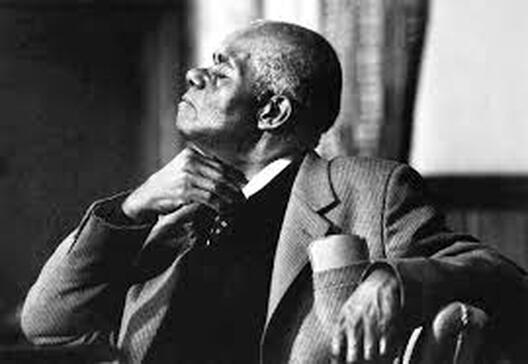








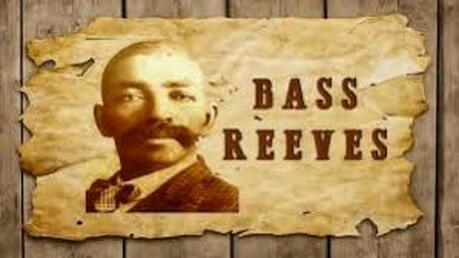
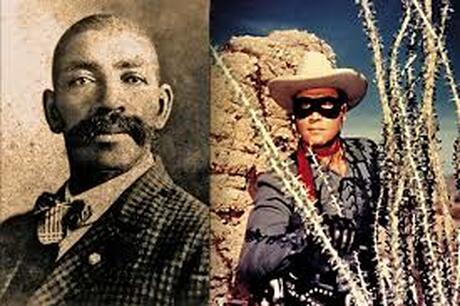
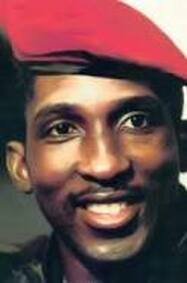

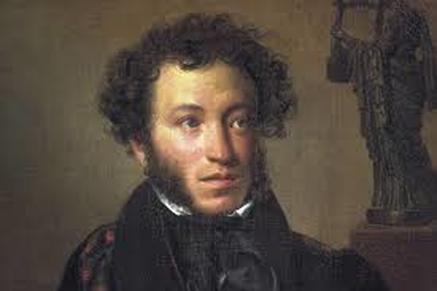


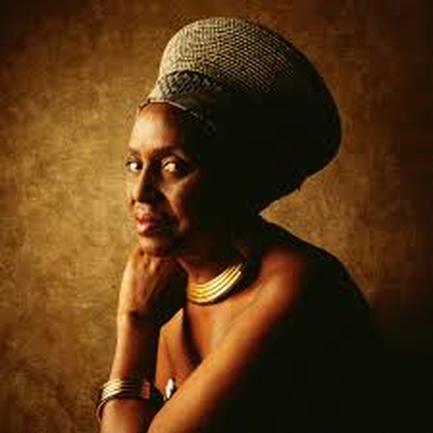
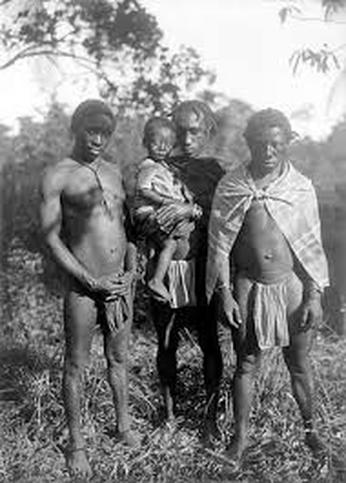
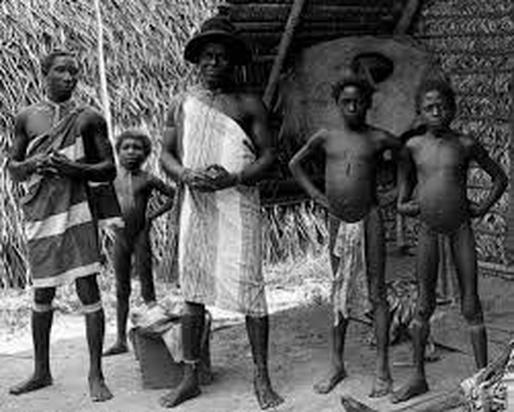


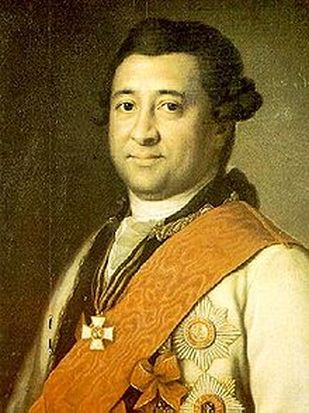



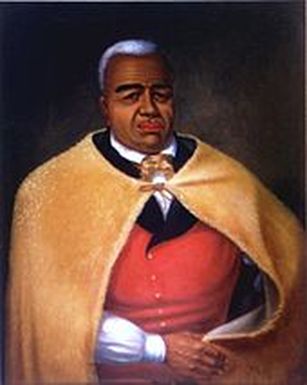
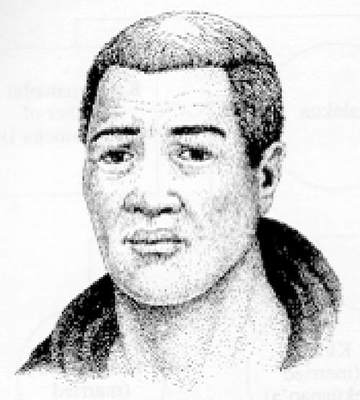

 RSS Feed
RSS Feed